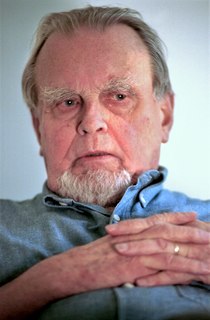A Quote by Irenaeus of Lyons
Error never shows itself in its naked reality, in order not to be discovered. On the contrary, it dresses elegantly, so that the unwary may be led to believe that it is more truthful than truth itself.
Related Quotes
Einstein's space is no closer to reality than Van Gogh's sky . The glory of science is not in a truth more absolute than the truth of Bach or Tolstoy, but in the act of creation itself. The scientist's discoveries impose his own order on chaos, as the composer or painter imposes his; an order that always refers to limited aspects of reality, and is based on the observer's frame of reference, which differs from period to period as a Rembrant nude differs from a nude by Manet.
The metaphysical apologia at least betrayed the injustice of the established order through the incongruence of concept and reality. The impartiality of scientific language deprived what was powerless of the strength to make itself heard and merely provided the existing order with a neutral sign for itself. Such neutrality is more metaphysical than metaphysics.
In the form of the oeuvre, the actual circumstances are placed in another dimension where the given reality shows itself as that which it is. Thus it tells the truth about itself; its language ceases to be that of deception, ignorance, and submission. Fiction calls the facts by their name and their reign collapses; fiction subverts everyday experience and shows it to be mutilated and false.
But though every created thing is, in this sense, a mystery, the word mystery cannot be applied to moral truth, any more than obscurity can be applied to light. ... Mystery is the antagonist of truth. It is a fog of human invention, that obscures truth, and represents it in distortion. Truth never envelops itself in mystery, and the mystery in which it is at any time enveloped is the work of its antagonist, and never of itself.
In order to be truthful
We must do more than speak the truth.
We must also hear truth.
We must also receive truth.
We must also act upon truth.
We must also search for truth.
The difficult truth
Within us and around us.
We must devote ourselves to truth.
Otherwise we are dishonest
And our lives are mistaken.
God grant us the strength and the courage
To be truthful.
Amen
True values entail suffering. That’s the way we think. All in all, we tend to view melancholia as more true. We prefer music and art to contain a touch of melancholia. So melancholia in itself is a value. Unhappy and unrequited love is more romantic than happy love. For we don’t think that’s completely real, do we?…Longing is true. It may be that there’s no truth at all to long for, but the longing itself is true. Just like pain is true. We feel it inside. It’s part of our reality.
Then there is the further question of what is the relationship of thinking to reality. As careful attention shows, thought itself is in an actual process of movement. That is to say, one can feel a sense of flow in the stream of consciousness not dissimilar to the sense of flow in the movement of matter in general. May not thought itself thus be a part of reality as a whole? But then, what could it mean for one part of reality to 'know' another, and to what extent would this be possible?









































